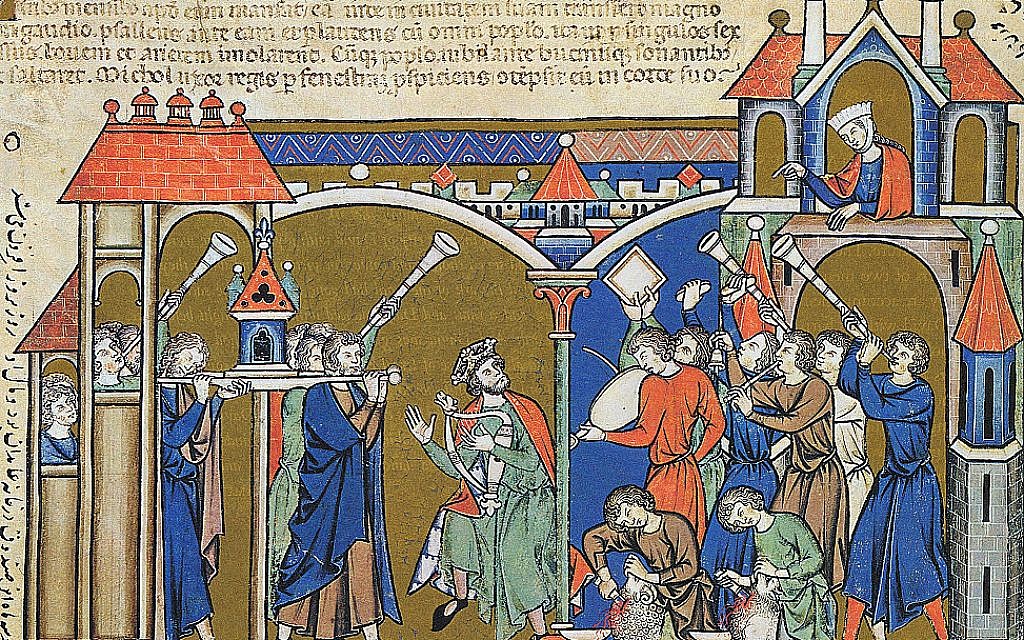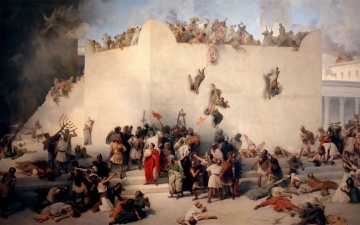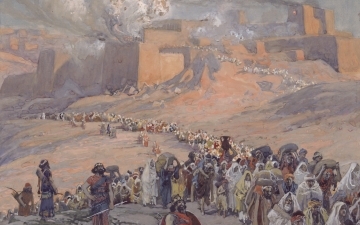
The history of the Hebrews is intricately woven with the narratives of their kings and prophets. From triumphant victories to heartbreaking tragedies, these figures played pivotal roles in shaping the destiny of the Hebrew people. As we explore their stories through the biblical accounts, we uncover the echoes of triumph and tragedy that resonate throughout Hebrew history.
Triumph: The Wise Rule of King David
King David, often regarded as one of the greatest Hebrew kings, exemplified wisdom, courage, and devotion to God. In 2 Samuel 8:6, we read of David's military triumphs, "So David put garrisons in Aram of Damascus, and the Syrians became servants to David and brought tribute." Under David's rule, the kingdom of Israel expanded and flourished, establishing a period of prosperity and stability.
David's triumphs were not limited to the battlefield; he is also celebrated for his Psalms, which express profound reverence and intimacy with God. His legacy as a "man after God's own heart" (1 Samuel 13:14) endures as a source of inspiration and spiritual guidance.
Tragedy: Solomon's Drift from God
King Solomon, despite his initial wisdom and success, faced tragedy in his later years. As recorded in 1 Kings 11:4, "For when Solomon was old, his wives turned away his heart after other gods, and his heart was not wholly true to the Lord his God, as was the heart of David his father."
Solomon's pursuit of foreign gods led to the division of the kingdom, marking a tragic turning point in Hebrew history. The once united nation split into the northern kingdom of Israel and the southern kingdom of Judah, ultimately leading to their downfall and exile.
Triumph: Elijah's Victory on Mount Carmel
The prophet Elijah emerged as a powerful figure in Hebrew history, standing as a bold and unwavering advocate for the true God. In 1 Kings 18:21, he famously challenged the Israelites, "How long will you go limping between two different opinions? If the Lord is God, follow him; but if Baal, then follow him."
On Mount Carmel, Elijah confronted the prophets of Baal in a dramatic display of divine power. Through prayer, the God of Israel sent fire from heaven, consuming the offering, and revealing His supremacy. This triumph restored faith in God and reaffirmed His covenant with the Hebrews.
Tragedy: The Fall of Jerusalem and the Babylonian Exile
Despite warnings from prophets like Jeremiah, the Hebrew kings and people continued to stray from God. The tragic consequence of this disobedience came to fruition in 586 B.C., when the Babylonians, under King Nebuchadnezzar, destroyed Jerusalem and exiled the people to Babylon.
The destruction of the Temple and the captivity in Babylon marked one of the darkest periods in Hebrew history. However, amidst the tragedy, the prophecies of hope and restoration, such as Jeremiah 29:11, offered comfort, assuring the people of God's plans for their future.
Hebrew history is a tapestry of triumphs and tragedies, with the kings and prophets serving as central characters in this remarkable narrative. From the wisdom of David to the zeal of Elijah, their stories resonate with echoes of faith, courage, and human frailty. Through both victories and defeats, we gain valuable insights into the complexities of the human spirit and the enduring presence of God in the midst of Hebrew history. These echoes continue to resonate, inspiring and guiding us as we navigate our own journeys of faith and perseverance.











